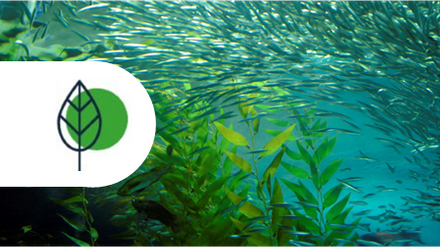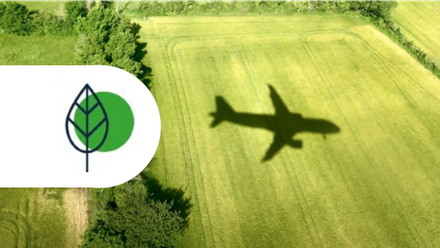Guest blog: Shedding Light on Compensation Rights for Survivors of Human Trafficking
The failure to ensure effective access to compensation for survivors of trafficking, be it directly from the perpetrators or from the State itself, causes harm to these very survivors.

On November 28th, 2023 the European Court of Human Rights (ECtHR) made a historic ruling, confirming the rights of a Bulgarian trafficking victim to claim compensation for lost earnings from her trafficker. This ruling marks the first time the Court has recognised a trafficking person’s right to seek compensation for pecuniary damage from their trafficker under Article 4 of the European Convention on Human Rights (ECHR – prohibition of slavery, forced labour and servitude).
Although a landmark decision, it should not be shocking that survivors of modern slavery and human trafficking can receive compensation; after all the Palermo Protocol (the most widely ratified international legislation on human trafficking) introduced the right to compensation for survivors of human trafficking, stating specifically: “Each State Party shall ensure that its domestic legal system contains measures that offer victims of trafficking in persons the possibility of obtaining compensation for damage suffered” (Article. 6). The law seems straightforward but, as often is the case, implementation is another matter. Indeed, the way in which compensation can be claimed, and the damages that can be claimed, are neither standardised nor straightforward, and the right is certainly underutilised.
That is why the ECtHR's ruling sets a powerful precedent; in addition it sends a strong message to traffickers that their actions will have tangible negative consequences for them, contributing to broader efforts to eradicate trafficking and exploitationThe case involved a Bulgarian woman whose trafficker confiscated her earnings, whose application for compensation to a Bulgarian court was rejected, citing engagement in prostitution and a purported violation of "good morals".
It is surely high time for courts to differentiate between an individual's trafficking situation and the real perpetrators of immorality in cases like these. Blaming the survivor for forced actions is not just legally dubious but also a masterclass in absurdity. Thankfully, the ECtHR found that the Bulgarian authorities failed to appropriately balance the woman's right, under Article 4 of the ECHR, to make a compensation claim with the interests of the community. The court’s reliance on the criminalisation of income from prostitution and outdated moral standards was deemed inadequate, especially considering the subsequent declaration of unconstitutionality of the relevant provision of the Bulgarian Criminal Code.
The ECtHR also emphasised the priority of human rights in shaping policies on prostitution and trafficking, asserting that in this case, ordering the trafficker to return the confiscated money would not offend public morals. It ordered Bulgaria to pay the applicant 6000 euros for non-pecuniary damage and 3100 euros for costs and expenses.
The ruling is welcome, but the case is very specific and does not actually address the grander issue. The real problem for trafficked people is even knowing of the possibility of obtaining compensation, in the first place; and second, somehow navigating the legal system to try to get it, often not knowing the language well enough and certainly not having any familiarity with often highly complex procedures.
In a recent project, funded by the Modern Slavery and Human Rights Policy and Evidence Centre, researchers (which includes this author) and data scientists developed a mobile App in which survivors of modern slavery and human trafficking could discuss their needs and answer questions about enjoyment of their basic rights. The RESTART (Reporting Experiences of Survivors to Analyse in Real-Time) project engaged with a final set of 425 journal entries written by survivors, with note content from 46 service users from 19 June 2023 to 13 October 2023. Analysis of data found that 68% were unaware that they might be entitled to compensation. Even more alarming was that 84% did not know how to seek help or advice when making a compensation claim, and a staggering 96% of users had not engaged in the process of claiming compensation at all.
What conclusions can we draw from the RESTART project findings, which have also been found by other researchers? Survivors do not know that they are owed money. Thus, it is imperative for states to fortify their commitment to the right to compensation and, notably, to amplify ancillary rights within the framework of combating modern slavery and human trafficking. Drawing upon the Palermo Protocol, we remind States not only to guarantee effective access to compensation but also prioritise ancillary rights, as articulated in Article 6 of the Protocol. Specifically, the Protocol emphasises the necessity of providing survivors of human trafficking with information pertaining to relevant court and administrative proceedings. Furthermore, State Parties are urged to contemplate the implementation of measures that enhance the provision of information, particularly with regard to the legal rights of victims. Moreover, aligning with the recommendations set forth by the UN High Commissioner for Human Rights (2002), we advocate for a comprehensive approach to dissemination of appropriate information. We stress the importance of delivering information in a language comprehensible to the survivors, as well as the critical significance of ensuring that foreign trafficked individuals can remain in the country during legal proceedings. Albeit with the way we see migration laws changing across Europe, who knows how this will play out in reality.
It is clear as light, that mere compliance with basic compensation requirements is not enough. Survivors are not benefiting from what is rightfully theirs, and they should not have to travel to Strasbourg to get it.
techUK - Committed to Climate Action
Visit our Climate Action Hub to learn more or to register for regular updates.
By 2030, digital technology can cut global emissions by 15%. Cloud computing, 5G, AI and IoT have the potential to support dramatic reductions in carbon emissions in sectors such as transport, agriculture, and manufacturing. techUK is working to foster the right policy framework and leadership so we can all play our part. For more information on how techUK can support you, please visit our Climate Action Hub and click ‘contact us’.
Latest Report
Upcoming climate events
Latest news and insights
Get our climate insights straight to your inbox
Climate, Environment and Sustainability updates
Sign-up to get the latest updates and opportunities from our Climate, Environment and Sustainability programme.
Learn more about our Climate campaign

Become a member









